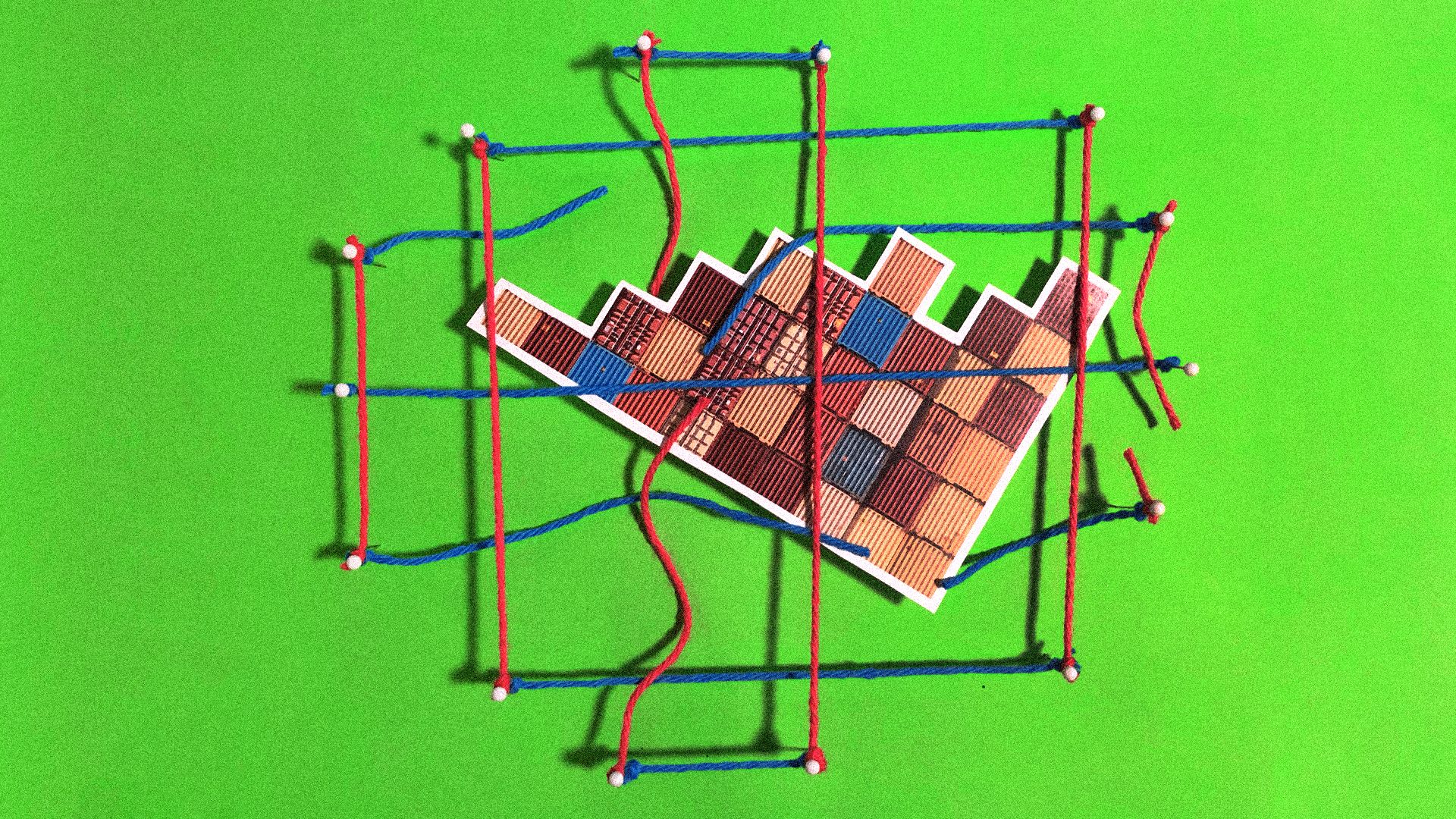The WTO is in over its head in Trump's trade war
Add Axios as your preferred source to
see more of our stories on Google.

Illustration: Sarah Grillo, Rebecca Zisser/Axios
Worried that President Trump is embarking on a global trade war, U.S. allies and adversaries alike are turning to the World Trade Organization to mediate — and getting nowhere.
The big picture: The WTO has no track record of dealing effectively with intellectual property theft or state-run corporations — two of the biggest modern trade obstacles — and takes months to resolve disputes at a time when the trade landscape shifts on a daily basis, according to trade experts.
Countries are taking the U.S. to court, but the WTO's quasi-judicial process moves too slowly.
- China filed a case in April opposing Trump's tariffs and claiming they discriminate against Chinese goods. The 60-day waiting period triggered after the filing is still in effect, but in that time tensions between the U.S. and China have dissipated and flared up again.
- India launched its own challenge over the tariffs — a step Delhi had threatened to take if it wasn't exempted. The move sets off another 60-day waiting period.
- And the European Union did the same on June 1. Speaking about the EU's decision to file a case against the U.S., trade commissioner Cecilia Malmström said, “The US is playing a dangerous game here.”
The WTO's rules were written for a physical world.
- The organization is best equipped to deal with the trade of physical goods, says Jim Lewis, a former Commerce and State Department official who's now at the Center for Strategic and International Studies.
- For example, Boeing recently had success with the WTO process, winning a case that involved European subsidies its for rival Airbus.
- But when it comes to the digital world, the WTO is ineffective, with no guidelines to handle intellectual property theft — a huge problem perpetrated by the Chinese — or the trade of intangibles.
The organization doesn't have a playbook for state-run enterprises.
- China offers state-run firms exclusive access to capital and sets barriers to entry for foreign firms, but the WTO has no means of dealing with these issues, Thomas Duesterberg, a Commerce Department international trade policy expert who's now at the Hudson Institute, says.
- "Trump is taking actions unilaterally ... and his team argues that's because WTO rules aren’t adapted to this century." He's right, says Duesterberg.
The bottom line: The chances of reforming a global agreement like the WTO are basically zero, Lewis says. The trade consensus that existed around the world before 2000 has largely disintegrated, he says.
